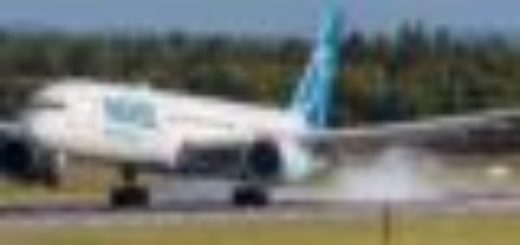Airbus casts doubt on FCAS fighter jet program, urges return to agreed terms
The Future Combat Air System (FCAS), one of Europe’s sixth-generation fighter program, may be at risk of unraveling.
According to the German newsletter Griephan Briefe, published on August 1, 2025, Michael Schoellhorn, CEO of Airbus Defence & Space, told German Chancellor Friedrich Merz:
“In summary, we no longer see any reason to continue the FCAS, other than a return to the agreed principles and their effective implementation.”
Such a blunt assessment is unusual coming from Airbus, which has so far maintained a publicly conciliatory tone, even amid persistent industrial tensions. Typically, it has been Dassault Aviation, through its outspoken CEO Éric Trappier, that has voiced frustration with the governance and direction of the program. Schoellhorn’s remarks suggest growing impatience within Airbus Defence & Space and a shift toward a harder line, just as FCAS faces a crucial political deadline.
The “best athlete” principle under strain
Among the founding principles of FCAS was the so-called “best athlete” model: responsibility for each pillar of the program should go to the company with the strongest expertise in that area. That approach was tested early on with the Next Generation Fighter (NGF)’s engine development, when France supported Safran Aircraft Engines, while Germany promoted MTU Aero Engines.
A compromise was eventually reached with the creation of a 50/50 joint venture, EUMET GmbH, giving Safran responsibility for development and integration, while MTU would handle support and maintenance.
However, more profound disagreements over governance persisted, particularly within the fighter aircraft pillar. Dassault CEO Éric Trappier repeatedly warned that Airbus was encroaching on Dassault’s responsibilities as prime contractor, especially in critical areas such as flight controls, stealth design, and cockpit systems. In November 2022, Trappier told the media that he would rather do the program “the Rafale way” than accept a diluted leadership model.
RELATED
Premature celebration? FCAS manufacturers still not on the same page
Calls for a “nEUROn-style” model
Dassault has consistently advocated for a governance framework modeled on the successful nEUROn UCAV demonstrator, developed in the 2000s with contributions from six European nations under French industrial leadership. Trappier reiterated this in July 2025, insisting on “clearly identified tasks and leadership” as essential for an effective partnership.
Meanwhile, Airbus, which leads Pillars 3 (Remote Carriers) and 4 (Combat Cloud), has resisted any renegotiation of the governance terms agreed before the launch of Phase 1B. Speaking to Reuters on July 30, 2025, Airbus CEO Guillaume Faury stated: “If, in a pillar, an industrial partner is not satisfied with [the governance], then they must decide what they want to do. The decision is theirs.”
Faury added, “We intend to continue the program. So, as far as Airbus is concerned, we are continuing our efforts.”
By contrast, Michael Schoellhorn’s reported message to the German chancellor appears far less diplomatic. His blunt assessment may signal growing frustration within Airbus Defence & Space over the lack of progress and what it sees as France and Dassault’s unwillingness to commit to the agreed cooperation model fully.
French–German divergence widens
Schoellhorn’s remarks come just days after a political summit between French President Emmanuel Macron and German Chancellor Friedrich Merz. The two leaders attempted to project unity, even as Dassault threatened to go its own way and Airbus signaled frustration over French demands for disproportionate control.
RELATED
Macron and Merz hope to keep FCAS alive as Dassault–Airbus rift widens
That summit followed widespread reporting that France had allegedly asked for 80% control of the NGF subprograms.
With German defense spending expected to exceed €100 billion by 2026, Airbus Defence & Space may feel it has the political and financial backing to reshape the FCAS effort, or even pursue alternatives.
Amid mounting pressure, the French and German defense ministers were tasked to deliver a roadmap for the program by August 28, 2025, a deadline that could prove decisive for FCAS’s future.The post Airbus casts doubt on FCAS fighter jet program, urges return to agreed terms appeared first on AeroTime.
The Future Combat Air System (FCAS), one of Europe’s sixth-generation fighter program, may be at risk of unraveling.…
The post Airbus casts doubt on FCAS fighter jet program, urges return to agreed terms appeared first on AeroTime.





